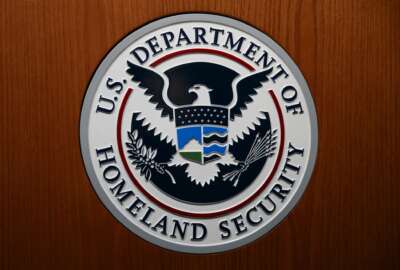DHS intelligence office to get outside help as Congress debates future authorities
The Office of Intelligence and Analysis has come under criticism for both overreaching in its authorities, while failing to heed information about the 2021 Capi...
A group of former intelligence officials, as well as privacy and civil liberties advocates, will advise the Department of Homeland Security’s intelligence office, as the future of the office’s authorities is debated in Congress.
DHS announced the formation of the Homeland Intelligence Experts Group last week. The group will provide “their unique perspectives on the federal government’s intelligence enterprise” to DHS’s Office of Intelligence and Analysis (I&A) as well as the Office of the Counterterrorism Coordinator.
The members of the group are wide ranging, including former CIA Director John Brennan and former Director of National Intelligence James Clapper, as well as Elisa Massimino, the executive director of Georgetown Law’s Human Rights Institute, and Gregory Nojeim, senior counsel and director of the Security and Surveillance Project at the Center for Democracy & Technology.
During an event at the Brookings Institution last week, Under Secretary for Intelligence and Analysis Ken Wainstein said makeup of the group is “really impactful.
“They are giving us advice about a lot of thorny issues we’re dealing with,” Wainstein said.
The appointment of outside experts come as Congress raises crucial questions about the role of the office within the intelligence community. I&A has come under criticism for overreaching in its authorities in certain cases, while also downplaying or ignoring “a massive amount of intelligence” ahead of the Jan. 6, 2021, Capitol riot.
The Senate’s version of the fiscal 2024 intelligence authorization act would prohibit employees at I&A from “engaging in the collection of information or intelligence targeting U.S. persons, except when carried out by I&A officials responsible for collecting information or intelligence from state, local, or Tribal territory governments or a private employer.”
The provision was included as an amendment to the legislation, passed during the Senate Select Committee on Intelligence markup of the legislation by a vote of 10-7.
In the “additional views” section of the legislation, Committee Vice Chairman Marco Rubio (R-Fl.) wrote that the committee is seeking to curtail DHS I&A activities that collect information on U.S. persons “who have no affiliation with foreign intelligence or foreign adversaries.”
Rubio pointed to reports regarding I&A’s collection on journalists covering civil unrest in Portland, Ore., in the summer of 2020; reports on I&A’s practice of interviewing people held in immigrant detention centers and local jails without counsel present; and I&A assessments of domestic violent extremism that cite the use of online platforms.
“These are issues for law enforcement, not the IC,” Rubio wrote. “We strongly support federal, state, and local law enforcement investigating domestic violent extremism in its many manifestations. When there are threats of violence, or incitement to violence, the perpetrators should be prosecuted to the fullest extent of the law. The FBI already has the authorities, operational tools, and resources to undertake such collection, and I&A should not be devoting intelligence resources to collect information on Americans with no connection to foreign intelligence or adversaries. Domestic law enforcement is not a job for the IC.”
During the event at the Brookings Institution, Wainstein pushed back on the Senate legislation, saying, “we need those authorities.” He said I&A’s origins stem from the 9/11 Commission recommendations and efforts to fill a “gap” in domestic intelligence.
“Our argument is . . . don’t take that authority away from us,” Wainstein said. “Just conduct oversight. Aggressively conduct oversight. We need to do it, but we need to do it within the bounds.”
Following a “360-degree review” of I&A operations, with a specific focus on privacy and civil liberties, Wainstein said the office has made several changes to bolster certain protections. For collection involving in-person interviews, Wainstein said I&A has launched an “in-depth review of the rules and procedures to make sure that they provide the level of governance needed for such a sensitive operation.”
And for open-source collection, I&A has launched a similar review “with a focus on providing our collectors with clear guidance on this distinction between communications that are protected from collection, and those related to a homeland threat,” Wainstein said.
He also said I&A recently established a “transparency and oversight program office,” led by veteran DHS attorney Andy Fausett.
Copyright © 2024 Federal News Network. All rights reserved. This website is not intended for users located within the European Economic Area.
Follow @jdoubledayWFED






